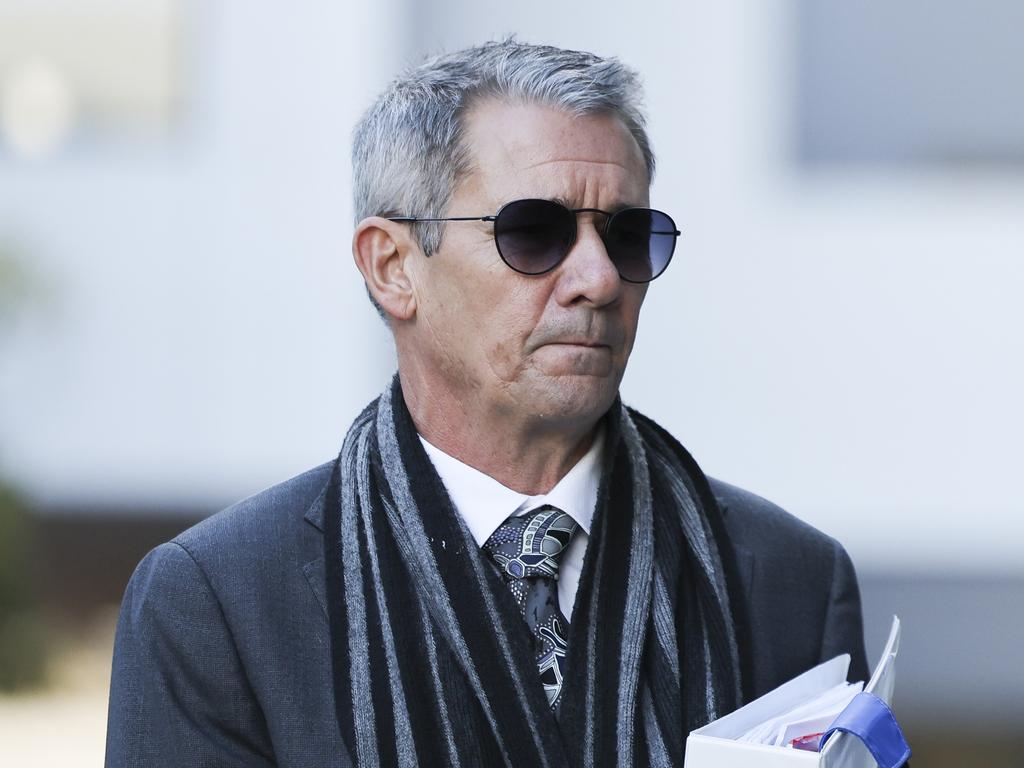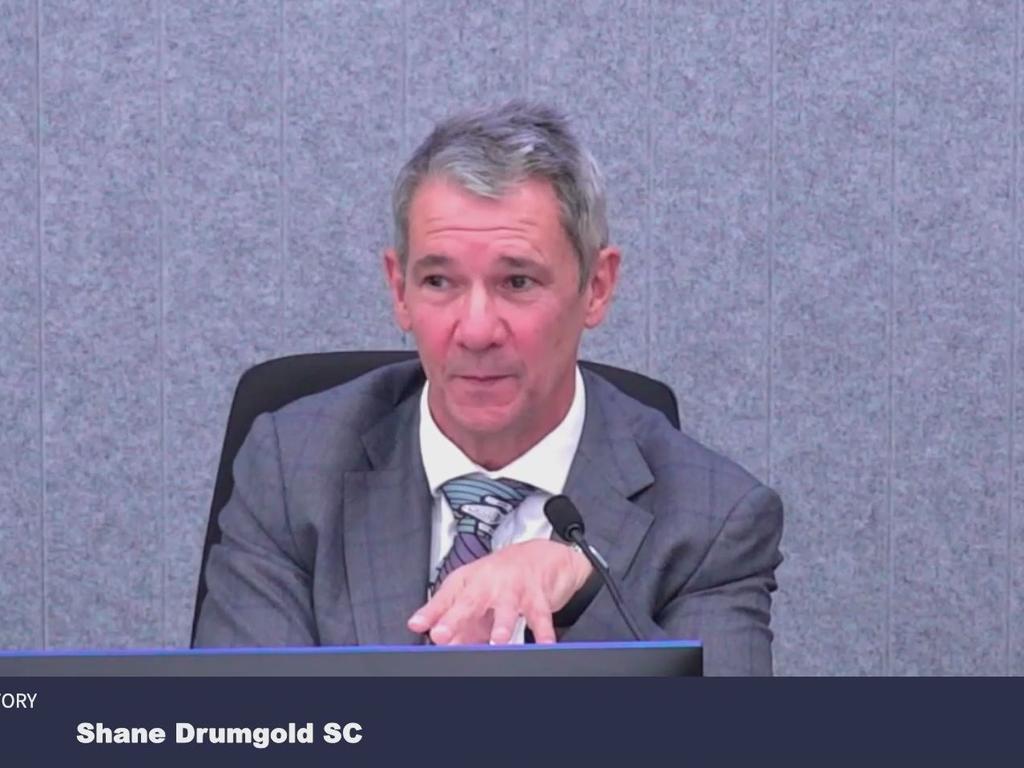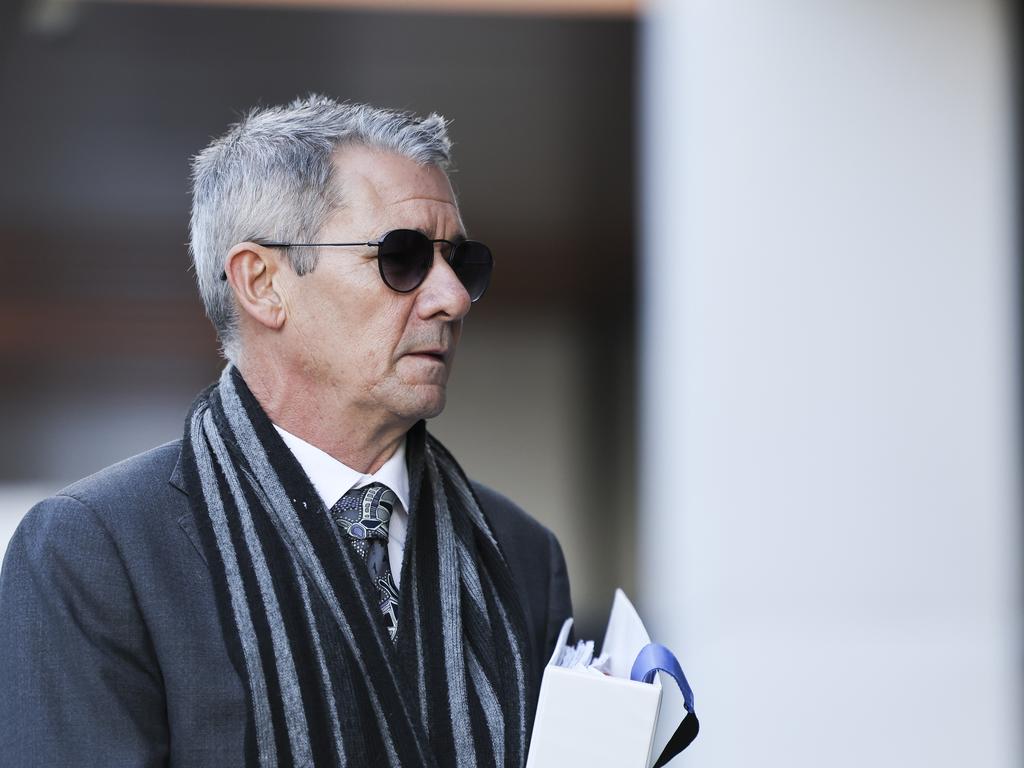Sofronoff Inquiry exposes a deficit of trust
The first full week of hearings into the ACT criminal justice system has raised a host of profound concerns.

Each is central to the public board of inquiry into how Australian Federal Police and the ACT Director of Public Prosecutions dealt with the investigation, prosecution and subsequent events around the rape allegation by Brittany Higgins against Bruce Lehrmann.
After the first full week of hearings led by inquiry chairman Walter Sofronoff KC, with Erin Longbottom KC as counsel assisting, we, as a community, have reasons to be concerned about some serious trust deficits.
Before looking at those, it must be said that given the forensic testing by Longbottom, even an angel would say at some point that in hindsight I should have handled one part of an investigation, or that part of a trial, or that part of the ensuing media storm around a national scandal, a little differently.
We are not talking about those very human, and minor, misjudgments.
It also should be said that by Thursday afternoon, at least one very serious trust issue was put to bed at the Sofronoff inquiry. It concerned claims by ACT DPP Shane Drumgold that there was political interference in the police investigation of the rape claim.
Few things destroy our trust in justice faster than being led to believe that senior ministers were interfering with the administration of justice. On Thursday, that fear was extinguished fully when Drumgold admitted he no longer believed it.
This early win for trust underlines the importance of the work being done by Sofronoff, Longbottom and the team of lawyers at the board of inquiry.
Frankly, the DPP’s claim was absurd. Sensible people would understand that he was dancing at shadows. There was no evidence to support his allegation. But, still, claims of this potential gravity must not be permitted to fester at any level in the community.
That still leaves a host of other profound trust concerns arising from this saga that must be exposed and mended to prevent distrust undermining the administration of justice. The work being done by the Sofronoff inquiry will extend far beyond the ACT and the Higgins case. It will remind us that similar issues that may arise in less high-profile cases need to be exposed, too, for the sake of our trust in justice.
Trust between the DPP and the AFP: Drumgold has accused police of applying the wrong test to charge defendants. He has pointed to particular meetings and accused some of the most senior officers of pressuring him and, in his view, of undermining the prosecution of a rape trial. Statements tendered to the inquiry record Drumgold as describing police as “boofheads”. He accused them, in front of the jury, of having a low skill set.
In his statement, Drumgold said he had grave concerns very early about police misconduct. He said he didn’t normally keep file notes of AFP briefings – which will strike many lawyers as odd, especially in a high-profile rape charge – but in this case he started a “continuous file note” to record those concerns.
When Longbottom presented Drumgold with a copy of his continuous file note on Wednesday, she asked him why he didn’t record his concerns arising from the particular meetings in the file note. Drumgold said his file note was not like Hansard.
True, but one would reasonably expect that a note created to record concerns about police pressure and the like during this investigation would reflect those concerns.
Sofronoff may choose to comment on who was to blame for the breakdown in trust. What matters more is whether these senior AFP officers and Drumgold can work together effectively in the future.
How many other trials, not as high-profile as the Higgins one, may have been similarly affected by a breakdown in trust? This needs to be resolved pronto for people to have faith in the proper investigation and proper prosecution of criminal matters in the ACT.
Trust between a prosecutor and defence: During the inquiry this week, Drumgold admitted he made numerous errors when he fought to keep material from the defence. For example, he said legal privilege attached to a document that formed part of the Moller Report, where police first raised several concerns about the strength of the Higgins case. At the inquiry, he admitted he had not read that document.
He admitted also that his assumption about privilege about other documents was, in hindsight, erroneous. The effect of these errors by Drumgold was to keep information from the defence lawyers that might have led them on trails of inquiry in formulating their defence. In this saga, trust between the defence team and the DPP was hanging by a thread, if it existed at all. Yet, it is critical to a fair trial, and the proper administration of justice, that defence lawyers can trust a prosecutor to disclose to them material that should be disclosed to the defence.
Trust between a judge and barristers: It is essential to our court system and court process that a judge can trust what a barrister says to them in court. That principle carries a steroid-like force when the barrister is the DPP, holding all the power and weight of the state in his hands.
This week the DPP admitted to misleading the court when he told Chief Justice Lucy McCallum that a proofing note the judge relied on to castigate journalist Lisa Wilkinson was contemporaneous and that it was created by his junior solicitor. That part of the proofing note was created at the DPP’s explicit direction to a junior lawyer, in his office, after Wilkinson’s controversial Logies speech.

The DPP also conceded that his direction to that same young lawyer, who was barely six months into his legal career, to swear an affidavit about the source of information concerning legal professional privilege might have misled McCallum when the DPP opposed the defence team’s demand for disclosure of the Moller Report. Both occasions were inadvertent, he said.
Still, these matters raised concern over serious legal issues about trust and competence. One is entitled to ask what the Chief Justice will think next time the DPP appears in her courtroom and makes claims to her. Can she trust the DPP to conduct himself properly, in accordance with his duties as a prosecutor and as a barrister? These duties are owed to the court for good reason. A lack of trust between a judge and a barrister, just as between a defence lawyer and a prosecutor, is diabolical to the proper operation of the court system, and therefore the administration of justice.
Our trust in the criminal justice system: Let’s return now to the community’s trust in a criminal justice system, our trust that the administration of justice is committed to a fair trial and the search for truth. What emerged from the DPP’s evidence this week was a recurring theme that he sought to protect the complainant from harm while apparently unconcerned about the risk to the defendant. Let’s take two examples from this week.
Drumgold said he didn’t want the Moller Report in the hands of the defence because he thought it would be “crushing” to Higgins.
Let’s put all the inflamed passions of this saga to one side and think dispassionately about that state of mind by a prosecutor.
What if material gathered by police points to lies by a rape complainant? Disclosing that to the defence may well be crushing to the complainant. But that is not reason enough to keep material from the defence. Another example. On Wednesday, Longbottom asked Drumgold about his December press statement where he lauded Higgins’ bravery and dignity after announcing he would not retry Lehrmann.
Longbottom: “Did you turn your mind to the impact that statement might have on Mr Lehrmann, who was entitled to the presumption of innocence?”
Drumgold: “Possibly not as much as I should have.”

After Longbottom’s questions led Drumgold to admit that he was unfair to Lehrmann in that public outburst, the DPP doubled down on Thursday by claiming, without a scintilla of evidence, there were 11 jurors who planned to convict Lehrmann. One rogue juror, who caused the mistrial, was the holdout, he claimed.
Is the DPP trying to publicly convict Lehrmann on a hunch, 11-1, using the publicity of this inquiry? Has he learnt nothing?
This raises a final point, one that we rarely discuss. We often talk about needing more victim-centric systems to deal with sexual assault complaints. It is true that we should be concerned to ensure that the system encourages women to come forward with allegations of rape, and that prosecutions result, and guilty verdicts follow where, after a fair trial, a jury has found a defendant guilty beyond reasonable doubt. Reforming the legal system, indeed every workplace and other places too, to facilitate that is important.
The challenge is that until an allegation has been proven in court, there is, in fact, no victim. There is a complainant who, of course, should be dealt with respectfully, compassionately and fairly. But by constantly using victim-centric language, we risk undermining the constant commitment we need to those principles that deliver a fair trial. Routinely, in workplaces and at universities, gender equity and diversity consultants are brought in to overhaul their culture. These consultants use a tool kit predicated on a victim-centred approach.
The risk is that, increasingly, it means forget everything you ever learned about due process, the presumption of innocence or even basic fairness.
It would make more sense that we stop using the term “victim-centric” when dealing with any kind of incomplete legal process. By definition, this term is not objective. It means that a workplace or a university is approaching a matter with a solicitude for, or predisposition in favour of, a complainant, which leads to a loss of objectivity and unfair treatment of the accused. It is only when a fair, open and proper process has been completed and findings of fact or guilt have been made that there is a victim. Only then we can speak about victim-centric approaches.
I raise this issue after listening to days of evidence from the DPP. His concern for victims is laudable and genuine. But after this week, one may wonder whether Drumgold had strayed, even with the best of intentions, and even inadvertently, from acting as an objective minister of justice to acting as Higgins’s lawyer. That is untenable.
Our trust in the criminal justice system depends on a DPP, by his conduct, his decisions and his statements, never veering from that of minister of justice.








Trust is central to our criminal justice system. Trust between police and prosecutors. Trust between prosecutors and defence lawyers. Trust that a defendant has in court. The trust a judge must have in lawyers appearing in a trial. And our trust as a community that the criminal system will treat all citizens equally and fairly as it searches for truth. Each of these relationships depend on trust.